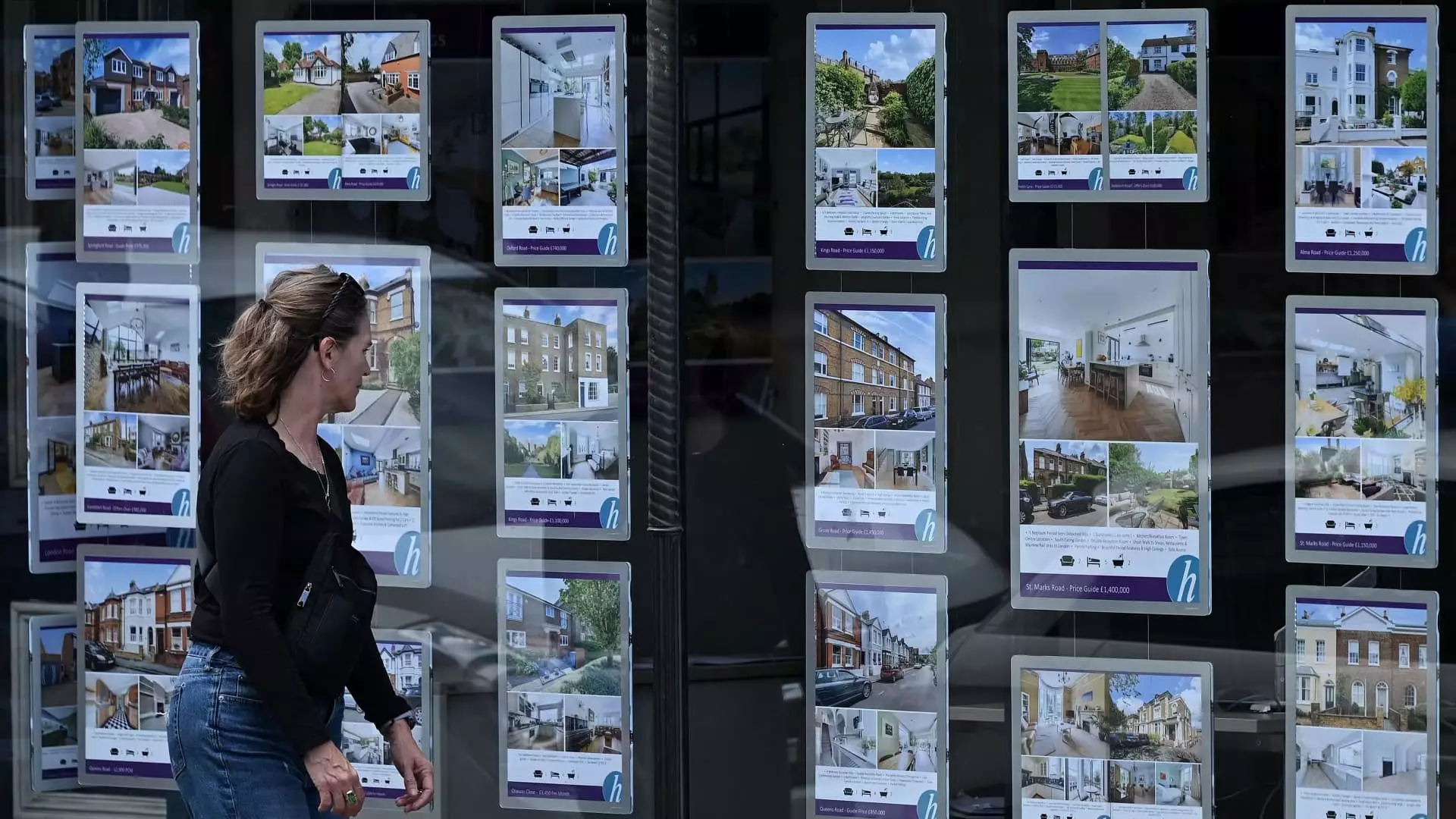The U.K. housing market is experiencing a notable renaissance as lower mortgage rates create an encouraging environment for homebuyers. Recent data indicates a significant upswing in home sales, representing the highest surge since the spring of 2021. This increase reflects a growing movement among households who had previously postponed their real estate decisions to finally re-enter the market, highlighting a renewed confidence among potential buyers.
Statistical Insights: A Market on the Rise
According to property portal Zoopla, agreed home sales shot up by 25% year-over-year in the four weeks up to September 22. This is an encouraging sign that the market may be shaking off the stagnancy observed over the past two years. Alongside this, inquiries from prospective buyers increased by 26%, underlining an overall boost in market activity. Such increasing enthusiasm within the housing sector is echoed in the stock performance of major U.K. homebuilders like Taylor Wimpey and Barratt Developments, both of which saw shares rise by 1.4% following the favorable data release.
Simultaneously, house prices have begun to see upward movement once again, climbing by 3.2% yearly as reported by Nationwide. This figure marks a noticeable increase compared to the previous month and could be attributed to favorable lending practices, particularly in light of recent reductions in borrowing costs from major lenders. With average mortgage rates for five-year fixed terms now at approximately 4.57%, down from 5.53% the previous year, buyers are experiencing a more palatable financing landscape.
As mortgage rates continue to trend downwards, the impact on buyer behavior cannot be understated. Richard Donnell, executive director at Zoopla, articulates this optimism, noting that lower mortgage rates are revitalizing consumer confidence and encouraging hesitant homeowners to make moves. Additionally, the Bank of England’s recent interest rate cut, which represents the first reduction in over four years, has certainly played a pivotal role in shaping the current lending environment.
The BoE has noted a substantial rise in mortgage approvals, reaching levels not seen in two years. Market analysts are closely monitoring the Bank’s upcoming meeting on November 7, anticipating potential further adjustments in borrowing costs. Governor Andrew Bailey hinted at the possibility of more decisive rate cuts, provided inflation trends continue to stabilize favorably.
Regional Variations: Where the Growth is Happening
Regionally, the housing boom is markedly pronounced in Northern Ireland, where house prices have soared by 8.6%, and Scotland, with a commendable 4.3% increase. Meanwhile, the northern regions of England are continuing to outpace their southern counterparts, a trend that holds significant implications for buyers and investors alike. London, however, continues to hold its own as the strongest performer among southern districts, witnessing a 2% growth in property values.
Despite this positive trend, it is worth noting that the demand for apartments has waned as the post-pandemic preference for spacious homes remains prevalent. The influx of properties as landlords look to divest before the anticipated tax policy changes further nuances this evolving market dynamic.
As the U.K. economy grapples with a projected £22 billion “black hole,” Finance Minister Rachel Reeves has indicated possible tax reforms to stabilize finances. Although increases to income tax and value-added tax have been ruled out, adjustments to capital gains and inheritance tax—both directly affecting property transactions—remain under consideration. Speculation surrounding the Labour government’s upcoming autumn budget could impact market confidence, particularly as investors adjust to the shifting fiscal landscape.
Reports suggest that potential changes to non-dom tax status might drive high-net-worth individuals to reconsider their property holdings, thereby increasing supply in the luxury market segment. Industry experts, including Donnell, warn that an increase in second properties for sale may temper the ongoing price inflation, allowing buyers greater leeway and potentially stabilizing the market into 2025.
The U.K. housing market is witnessing a significant recovery fueled by declining mortgage rates and renewed buyer interest. While regional disparities and potential tax reforms may affect the market’s trajectory, the overall outlook is one of cautious optimism. As buyers continue to re-engage with the market, the interplay of finance, consumer confidence, and policy changes will be integral in shaping the future of U.K. real estate.

